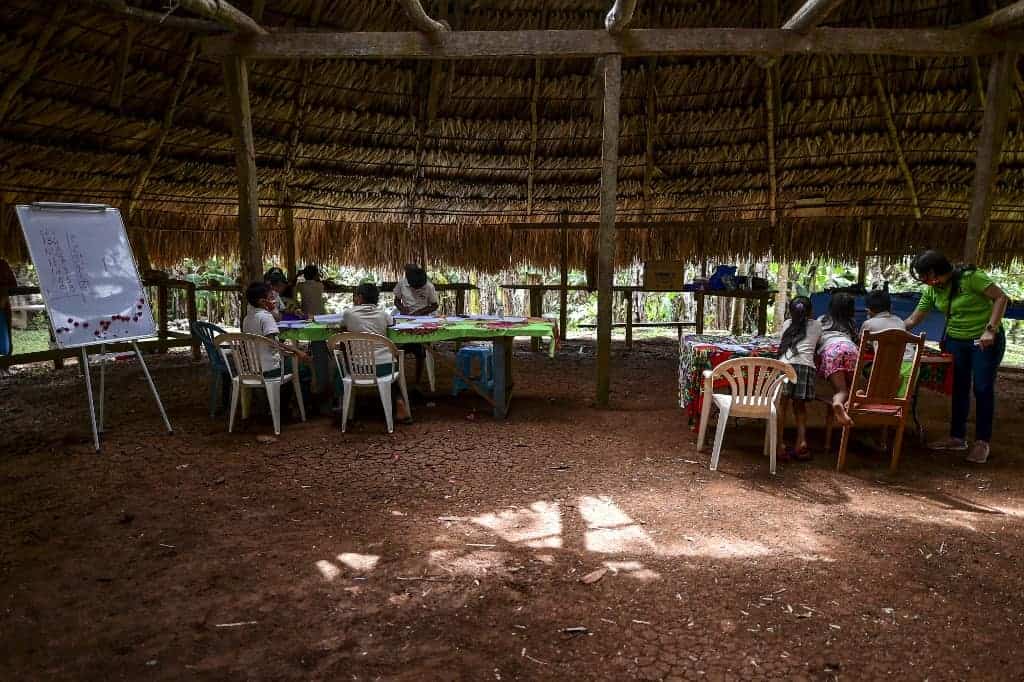Once a week, teacher Graciela Bouche takes a canoe from her small town in the Panama rainforest to an indigenous village some two kilometers away where spotty internet cannot replace shuttered classrooms.
At the end of her unusual 15-minute commute, made possible by the strong arms of a local paddler, Bouche disembarks in Ella Puru carrying her laptop, whiteboard, markers, and other teacher’s essentials.
She also brings food to share with the budding young minds whose community relies almost entirely on tourism brought to an abrupt end by the coronavirus epidemic.
The people of Ella Puru — a community on the Chagres River which forms part of the Panama Canal system — are of the Embera tribe.
The women, who wait in the background as their children learn, wear striking hibiscus headgear, traditional clothes and adornments with a new detail — the ubiquitous facemask.
The 30-odd children, too, are masked as they learn their lessons in the shade of a thatched enclosure, clustered around plastic tables covered in colorful cloths.
“The decision to come to this community was a product of the connectivity problem they have and the fact that they were not receiving the same academic content as other students,” Bouche, 37, told AFP.
“This motivated me to come and give them lessons that are partly in-person.”
In forest, poor signal
In pre-pandemic times, the children of Ella Puru and other nearby indigenous communities went to school some 15 kilometers (nine miles) away in the neighboring province of Panama.
To get there, their parents had to bring them by boat to a meeting point from where they took a bus for a 40-minute journey.
The school, like many others around the world, closed last year due to the coronavirus pandemic.
But while their urban peers mostly continued their schooling online, Bouche said the Ella Puru kids quickly started falling behind, with no electric grid and spotty cell phone reception making virtual learning difficult.
“Sometimes the phone signal disappears, or there is no data or I have no card with which to connect the child, and since there are many web pages, it is difficult to enter,” said 27-year-old resident Evelyn Cabrera, whose son is in the first grade.
Dangerous journey
“The journey is a bit long and dangerous, but she (Bouche) does it with love for the children and we really appreciate that,” she added.
At the makeshift school, the children are divided into groups according to age, and each given a task as Bouche flits between them.
From her cell phone, the teacher videocalls a fourth-grade teacher to give a long-distance maths class to one group, while some of the younger kids learn to differentiate left from right.
With Bouche, the children speak Spanish, but among themselves they use the Embera language.
The teacher uses her cell phone to record the children’s English practice, which she sends to a colleague via WhatsApp for evaluation.
Better transport needed
“Once the pandemic and this whole world crisis is over, it would be good to improve transport for them to return to school,” Bouche said.
“They should have fixed transport to and from school and they should receive their full learning hours.”
Around lunchtime, Bouche gets back in the canoe, headed back home to swap her real-life classroom for a virtual one: city children are counting on her for internet classes in the afternoon.






